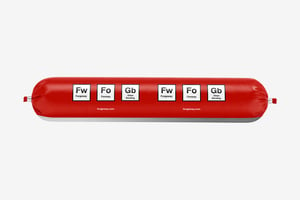All of Forgeway's Glass Bonding Adhesives have a Hybrid Polymer base chemistry meaning they are fully primerless and free of isocyanates and sillicone.
This page is going to help you understand what is important for a glass bonding adhesive and highlight Forgeway's glass bonding options.
When selecting a glass bonding adhesive it's important for the adhesive to have the 2 following characteristics:
.png)
.png)
After the two characteristics mentioned above, there are a few other characteristics that will help you find the perfect glass bonding solution.

During production, the glass bonding adhesive needs to reach handling strength quickly. This will ensure there are no hold-ups and production runs quickly. However, this speed shouldn't sacrifice quality. If the adhesive cures too fast, it can start to skin over before the glass is put into the correct position, affecting the bond's strength. Balancing open time with cure speed is fundamental.

The use of primers is very commonplace in glass bonding. However, they add another layer of complexity to the bond that can create challenges. Not to mention the added time required to let the primer cure. Removing a primer will reduce production time and decrease the likelihood of operator error.

Glass bonding adhesives usually contain harmful chemicals that require professional training for their safe use. This is due to the base chemistry being polyurethane-based. Using a Hybrid Polymer adhesive will eliminate the need to train staff and implement strict safety measures.
All of Forgeway's Glass Bonding Adhesives have a Hybrid Polymer base chemistry meaning they are fully primerless and free of isocyanates and sillicone.



Formoa screen is a single-component Hybrid Polymer adhesive. It is designed for primerless glass bonding with very low viscosity and fast through cure.
Compare our 3 Glass Bonding adhesives using the table below.
Watch the video below on how to select a Glass Bonding Adhesive or get in touch to speak with an expert.
✖
The product you have selected is classified as a Specialist Product
This means it has been made to the specific requirements of a certain type of customer.
These product characteristics may align with the task you are trying to solve.
To find out more, please get in touch with a Forgeway Adhesive Expert
Get in touch✖

Looking to buy this product online?
Where would you like to buy from?
✖

Looking to buy this product online?
Where would you like to buy from?






